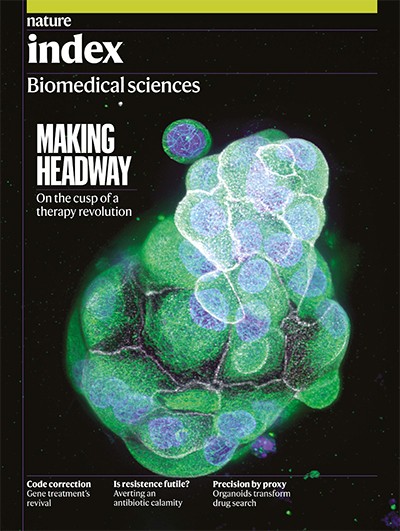Some pathogenic threats, such as COVID-19, are difficult to anticipate. A number of scientists did warn that a pandemic would eventually come our way, but its timing and its precise form were unknown. Even so, multiple vaccines were developed and deployed with extraordinary speed, largely thanks to unprecedented funding and years of foundational vaccine research. By contrast, the specific and wide-reaching dangers posed by antibiotic-resistant bacteria have been known about and anticipated for as long as we’ve had the drugs themselves.
Alexander Fleming warned of this in his 1945 Nobel prize lecture, and in the decades since, his warnings have proved extremely prescient. In 2019, antibiotic-resistant infections were responsible for nearly 1.3 million deaths globally — more than either HIV or malaria. That figure could reach 10 million per year by 2050 unless significant action is taken. Data from the US Centers for Disease Control and Prevention and The Pew Charitable Trusts indicates that COVID-19 has exacerbated the problem for a variety of reasons, including the widespread overuse of antibiotics early in the pandemic.
It might be tempting to draw reassurance from the speed with which scientists developed and deployed COVID-19 vaccines, and assume a new small-molecule antibiotic could be delivered just as quickly after the onset of a global superbug emergency, but that would be a mistake. There are two key differences worth highlighting.
Nature Index 2022 Biomedical sciences
First, the COVID-19 vaccines were preceded by decades of consistent funding in vaccinology. Although there have been more-recent investments in research covering antimicrobial resistance (AMR) and early-stage antibiotic development — including international initiatives such as the Combating Antibiotic-Resistant Bacteria Biopharmaceutical Accelerator (CARB-X) and the AMR Action Fund — they pale in comparison to the levels of investment in vaccine research preceding the arrival of COVID-19.
Second, existing vaccine expertise and infrastructure allowed for rapid mobilization on the logistics front. Conversely, there are almost no major pharmaceutical companies still engaged in antibiotic R&D — most discontinued their antibiotic work owing to poor profitability. The resources that were immediately available to make the delivery of multiple vaccines possible around the world simply do not exist for antibiotics.
The pipeline of antibiotics in development has been inadequate and stagnant for years. It’s been nearly four decades since a new class of antibiotics was discovered, and there are currently fewer than 50 antibiotics in development worldwide, compared with more than 1,000 medicines in development for disease such as cancer. The picture worsens when you consider that, according to Pew’s latest assessment, just one in four of these candidate antibiotics are entirely new in their mechanism of action, which is what is needed to overcome growing resistance.
As things stand, this is not an innovation deficit that can be made up quickly. Historically, it has taken 10–15 years and US$1.3 billion to develop a new antibiotic.
There is no single policy that will get the world ready to battle new superbugs, but there are steps we can take now. We need to fix the broken antibiotic market; pharmaceutical companies are not sufficiently incentivized to engage in the costly research and development needed to create new antibiotics. Changing the way we pay for these drugs — by delinking antibiotic revenue from sales and instead linking it to the value to public health — is key. The bipartisan Pioneering Antimicrobial Subscriptions to End Upsurging Resistance (PASTEUR) Act, introduced to the US Congress, could be one way to do this, by offering sizable, upfront funding commitments to companies that deliver innovative, high-priority antibiotics. These commitments would be determined by the effectiveness of the new drug in combating antibiotic-resistant bacteria that present the most urgent threats, rather than by the volume of prescriptions sold. This approach gives companies the steady return on investment they need to re-engage in the field, while supporting the responsible stewardship of new antibiotics necessary to preserve effectiveness. Other countries, such as the United Kingdom, with its ‘Netflix’ model, are doing similar things by paying for new antibiotics on a subscription rather than per use basis.
With the growing and urgent threat posed by antibiotic-resistant superbugs, there is truly no time to waste. Common sense, bipartisan solutions such as the PASTEUR Act need to be initiated immediately, and the global community must at the same time work to increase the attention, funding and action commensurate with the scale of what’s at stake.
Competing Interests
The author declares no competing interests.


